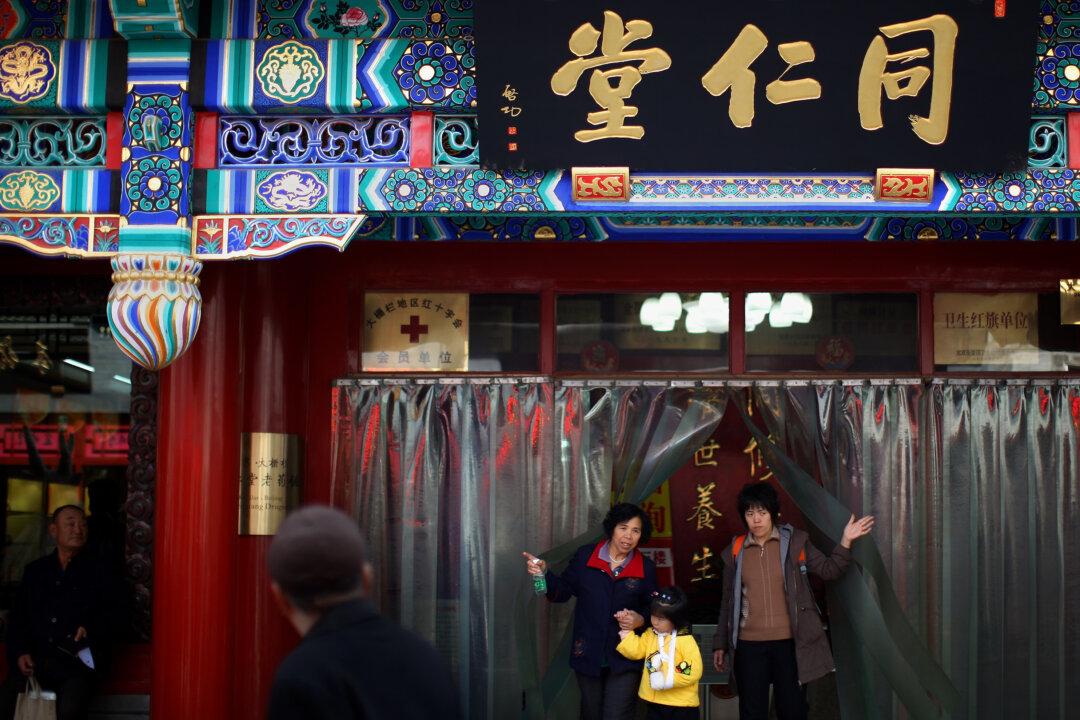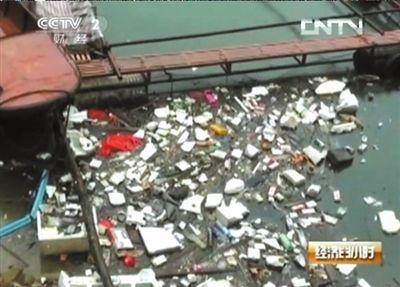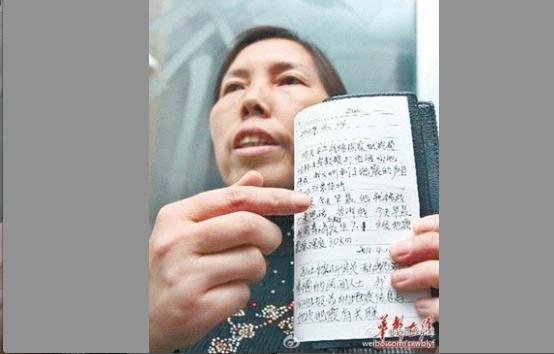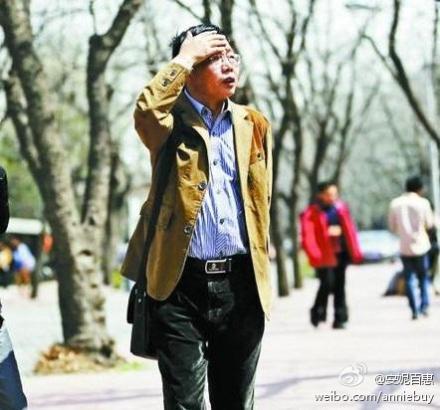Recurring scandals are tarnishing the brand of Tongrentang, a Beijing-based, 360-year-old manufacturer and retailer of traditional Chinese medicine remedies that sells its products around the world. The firm’s difficulties reflect systemic problems with the production of traditional remedies in China.
According to a May 9 report in the mainland Chinese newspaper Southern Daily, on May 7 Hong Kong’s Department of Health ordered a recall of the remedy Jian Ti Wu Bu Wan from all retail outlets because its mercury content was found to be five times the permitted limit. The medicine was not even supposed to contain mercury, said a Department of Health spokesman.
After Jian Ti Wu Bu Wan was withdrawn in Hong Kong, sources in the traditional Chinese medicine industry told Southern Daily that two of the company’s other products, Niu Huang Qian Jin San and Xiao Er Zhi Bao Wan, were found to contain 17.3 percent and 0.72 percent of mercury sulfide by weight, far exceeding international safety limits.
The publicity about the high levels of mercury in these three remedies came just after Tongrentang’s subsidiary, Beijing Tong Ren Tang Chinese Medicine Co Ltd (8138:Hong Kong) launched an IPO on the Hong Kong stock exchange on May 6. News of the heavy metal contamination thus gained much media and public attention.
The Tongrentang brand has been considered a benchmark for traditional Chinese medicine. The company was established in 1649 and served the imperial court. Today, its website reports its products are sold in 40 countries and regions, and the Chinese regime mouthpiece People’s Daily has referred to the company as the largest producer of traditional Chinese medicine.
According to industry sources cited by Southern Daily in a May 21 report, the problems involving mercury contamination are not limited to a few Tongrentang products.
The sources say around 40 medicinal products widely sold by Tongrentong contain mercury sulfide. In addition, about 30 percent of the company’s medicine products for children also contain mercury sulfide, according to the insiders.
The Chengdu Business Daily in a May 22 article reported that the illegal additive mannitol was detected in January this year in the Pobifong pollen flakes produced by Tongrentang, which violates China’s National Food Safety Standards.
Dried Chinese foxglove slices produced by Beijing Tongrentang (Bozhou) Sliced Chinese Medicine Co. Ltd. failed in April to meet requirements over total ash content as well as acid-insoluble ash content, also according to Chengdu Business Daily.
Dr. Wang Quansheng, vice director of the Integrated Therapy of Traditional and Western Medicines at central China’s Wuhan Union Hospital, told the Hong Kong newspaper Wen Wei Po that according to China’s official pharmacopoeia, the daily intake of mercury sulfide should not exceed 0.1 - 0.5 grams per person. The long-term intake or overdosage of the compound could result in damage to the liver, kidneys, and nervous system.
Tongrentong issued a statement on May 22 on its official website, saying that cinnabarite (or mercury(II) sulfide) is a traditional Chinese medicine with a history of about 2000 years, and as long as patients follow the doctor’s instructions, it should be safe to take.
The quality control issues that have surfaced with Tongrentang are not particular to it.
Shi Lichen, cofounder of the Medical Business Unit at the Alliance PKU Management Consultants Ltd., a specialized management consulting company held by Peking University, said that Chinese companies need to adopt strict controls to ensure that the raw materials they use are free from heavy metal contamination, with possible sources including herbs grown in contaminated soil, and middlemen who secretly add heavy metals to raw produce to increase its market weight. Companies must also ensure that their manufacturing processes do not introduce heavy metals into their medicine products as well.
The public has in the past shown great concern over the issue of heavy metal contamination, and the Tongrentang incident has left some wondering.
Mr. Wang Jingye, a famous Chinese tenor who now lives in Singapore wrote on his Weibo, “If I can’t even trust such an established medicine brand as Tongrentang, is my best hope to await death if I fall ill?” “God, if even medicine is poisonous now, can you please tell us what is still safe to eat [in China]?”
Translated by Leo Chen. Written in English by Shu Yan Tan.
Read the original Chinese article.



